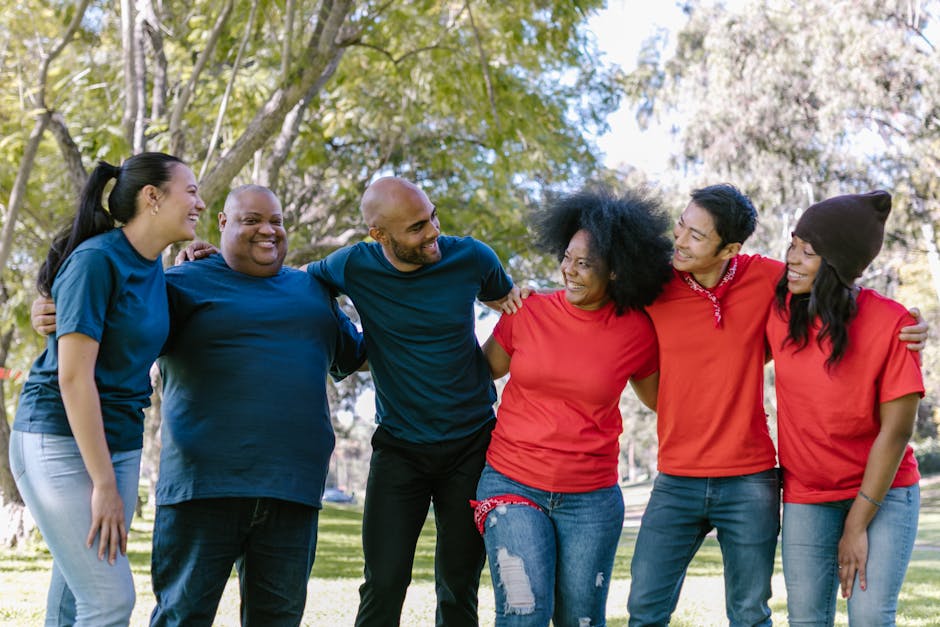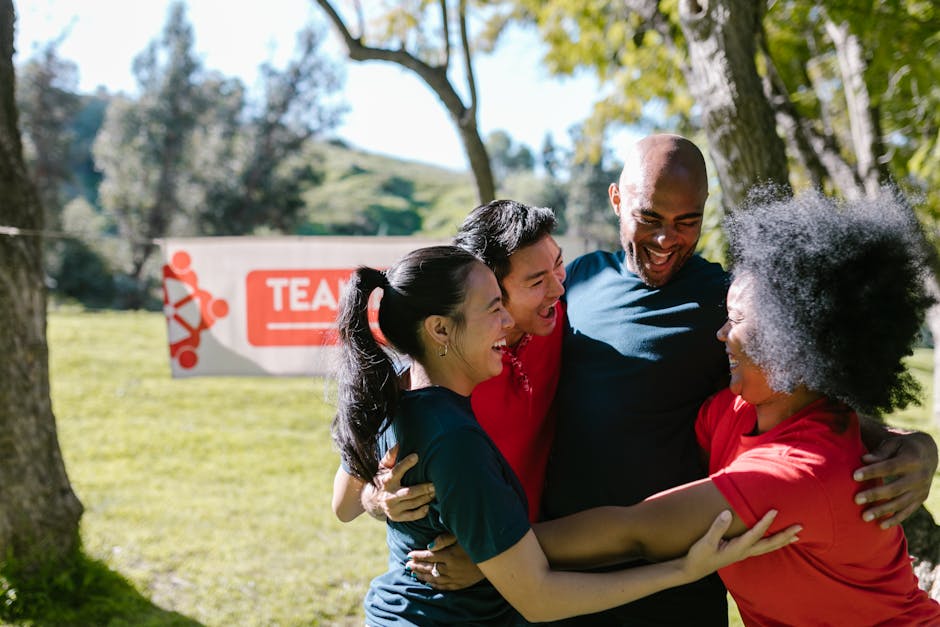Tips for Hosting Community Events: A Comprehensive Guide
Community events play a vital role in bringing people together, fostering relationships, and creating a sense of belonging. Whether you’re organizing a neighborhood block party, a charity fundraiser, or a cultural festival, hosting community events requires careful planning and execution. In this article, we will explore various tips and strategies to help you host successful and engaging community events that leave a lasting impact on attendees.
Setting Clear Objectives

By RDNE Stock project via Pexels
Before diving into the logistics of planning a community event, it’s essential to define your objectives. What do you hope to achieve with this event? Are you looking to raise awareness for a cause, promote local businesses, or simply provide a fun and engaging experience for residents?
By setting clear objectives, you can tailor your event to meet these goals effectively. For example, if your main objective is to raise funds for a local charity, you may focus on securing sponsorships, selling tickets, and organizing fundraising activities during the event.
It’s also important to consider the needs and interests of your target audience when setting objectives. Understanding what motivates them to attend community events can help you design a program that appeals to their preferences and ensures a high turnout.
Building a Strong Team

By RDNE Stock project via Pexels
Hosting a successful community event requires a dedicated team of volunteers and staff members who are committed to making the event a success. Recruiting volunteers from the local community can not only help distribute the workload but also foster a sense of ownership and pride among residents.
Assigning specific roles and responsibilities to team members based on their skills and expertise can streamline the planning process and ensure that all aspects of the event are well-executed. Communication is key when working with a team, so regular meetings, updates, and feedback sessions are essential to keep everyone on the same page.
Additionally, having a designated point person or event manager who oversees the planning and execution of the event can help maintain accountability and ensure that deadlines are met.
Securing Permits and Permissions

By Henri Mathieu-Saint-Laurent via Pexels
Before finalizing any event details, it’s crucial to obtain the necessary permits and permissions from local authorities. Depending on the size and scope of your event, you may need permits for parking, alcohol sales, food vendors, sound systems, and more.
Working closely with city officials, police departments, and other relevant agencies can help streamline the permit application process and ensure that your event complies with local regulations and safety standards. Failure to secure the required permits can result in fines, shutdowns, or legal repercussions, so it’s important to prioritize this step early in the planning process.
Creating Engaging Programming
The success of a community event often hinges on the quality of its programming. From live performances and interactive workshops to food tastings and children’s activities, a well-rounded event program can cater to diverse interests and demographics within the community.
Consider partnering with local artists, musicians, chefs, and organizations to provide a variety of entertainment and educational experiences for attendees. Interactive elements such as games, contests, or hands-on activities can help engage participants and create memorable moments.
When designing the event schedule, be mindful of pacing and flow to ensure a smooth and enjoyable experience for guests. Include breaks between activities, allow time for networking and socializing, and provide clear directions and signage to help attendees navigate the event space.
Promoting Your Event
Effective promotion is crucial to attracting attendees and generating buzz around your community event. Utilize a mix of online and offline marketing channels to reach a broad audience and generate excitement leading up to the event.
Create a visually appealing event website or landing page that provides essential information such as date, time, location, program schedule, ticketing details, and contact information. Use social media platforms, email newsletters, and local publications to promote the event and engage with potential attendees.
Collaborating with local influencers, media outlets, and community organizations can help amplify your event’s reach and connect with new audiences. Consider offering early bird discounts, group packages, or exclusive perks to incentivize early registration and ticket sales.
Ensuring Safety and Accessibility
As a host of a community event, it’s your responsibility to prioritize the safety and well-being of attendees. Conduct a thorough risk assessment of the event venue and activities to identify potential hazards and implement appropriate safety measures.
Ensure that emergency medical services, security personnel, and first aid stations are readily available on-site to respond to any incidents or emergencies. Communicate safety protocols and evacuation procedures to staff, volunteers, and attendees to promote a safe and secure event environment.
Accessibility is another critical aspect to consider when hosting a community event. Ensure that the venue is ADA-compliant and provides accommodations for individuals with disabilities, such as wheelchair access, braille signage, and designated parking spaces.
Collecting Feedback and Evaluation
After the event concludes, don’t forget to collect feedback from attendees, volunteers, and stakeholders to gauge the success of the event and identify areas for improvement. Surveys, comment cards, and focus group discussions can provide valuable insights into attendee satisfaction, event impact, and areas of strength and weakness.
Conducting a post-event evaluation with your team can help capture lessons learned and best practices for future events. Celebrate successes, acknowledge challenges, and identify opportunities for growth and innovation in your event planning process.
Expert Opinions
According to event planning expert, Sarah Smith, “Hosting community events requires a blend of creativity, organization, and community engagement. By harnessing the power of collaboration and communication, event organizers can create meaningful experiences that resonate with attendees and leave a lasting impact.”
Conclusion
Hosting community events is a rewarding endeavor that brings people together, celebrates diversity, and strengthens community bonds. By following these tips and strategies, you can plan and execute successful events that enrich the lives of residents, support local businesses, and contribute to the vibrancy of your community.
Remember, the key to hosting a successful community event lies in careful planning, effective communication, and a genuine commitment to creating memorable experiences for attendees. Whether you’re organizing a small neighborhood gathering or a large-scale festival, these tips can help you navigate the complexities of event planning and create events that resonate with your community.




